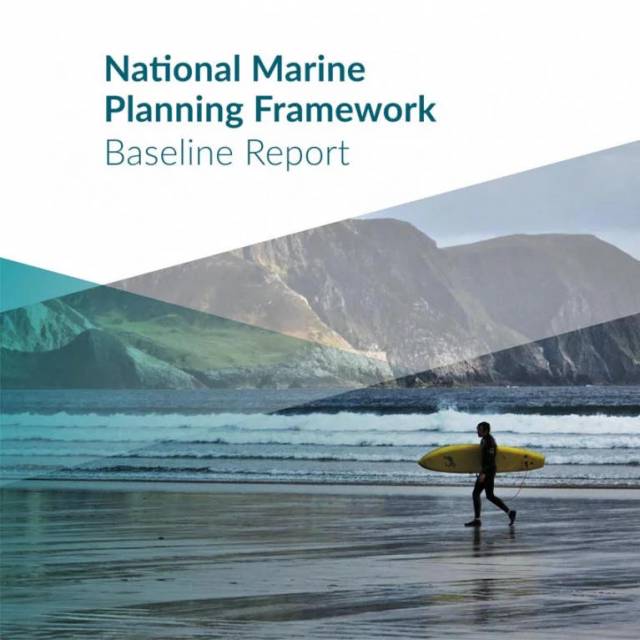More than half of submissions (53%) in the public consultation on the National Marine Planning Framework Baseline Report concerned the marine environment.
Ports and shipping (44%), climate change (42%) and nature conservation (41%) were other important topics raised among the 173 submissions received by the Department of Housing, Planning and Local Government from a wide range of stakeholders.
Published late last year, the baseline report aimed to bring together a clear picture of all activity in Ireland’s seas for the first time.
As previously reported on Afloat.ie, representatives from all key sectors comprise an advisory group overseeing the process.
In its preliminary analysis of responses, the department also identified renewable energy, aquaculture and fisheries, seaweed harvesting, cultural heritage and assets, and consents and licensing as other areas of importance to a cohort of stakeholders that runs from public sector bodies to local authorities, coastal community groups and sports bodies.
One of the key questions asked of respondents regarded Ireland’s future approach to spatial designation marine planning, with the vast majority of the 57 who expressed a preference opting for either a policy-led plan (44%) or a hybrid of policy and zoning (40%).
The proposal for a National Marine Planning Framework has been broadly welcomed by respondents, with the Irish Marine Federation (IMF) describing it as “the most significant shift in Irish marine policy for several decades” while adding that the economic contribution of sport and recreational boating, including marine tourism, has thus far been largely underestimated, and related policy should be fully integrated in any plan.
The IMF also raised the question of spatial planning in relation to Brexit, with lack of resolution of boundary issues over the likes of Lough Foyle and Carlingford Lough “a matter of great concern”.
All responses to the public consultation have been collected HERE.































































